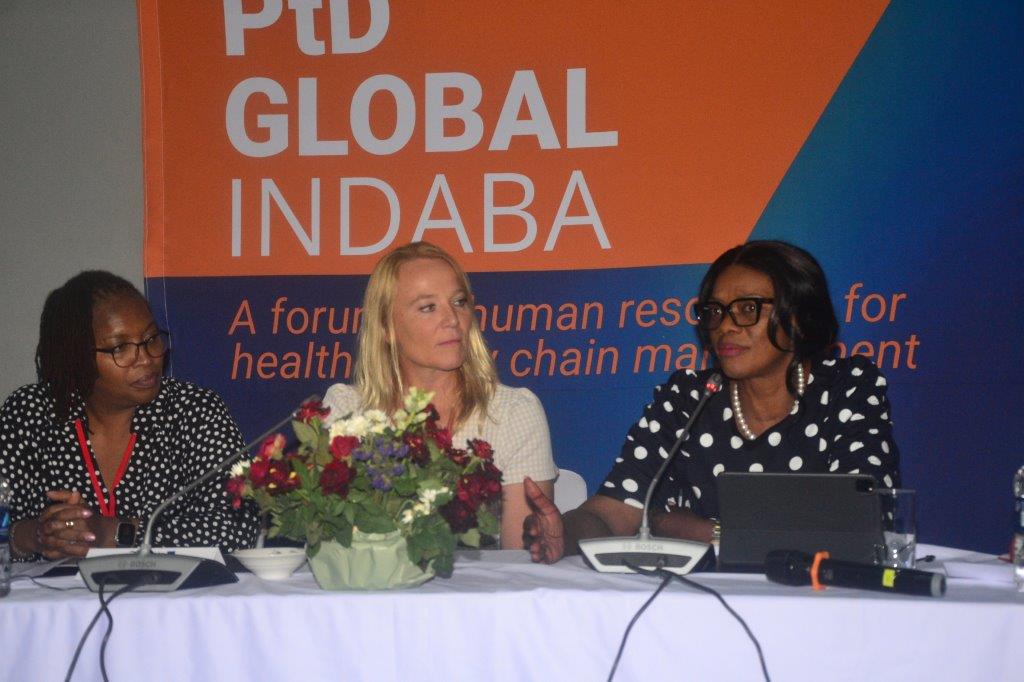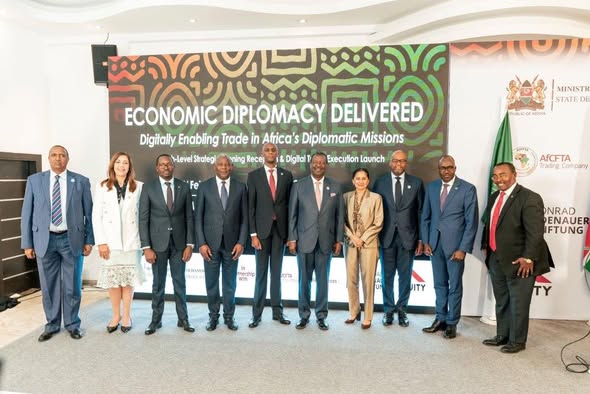SAVING LIVES THROUGH SUPPLY CHAIN SKILLS DEVELOPMENT

The inaugural “People that Deliver (PtD) Global Indaba” saw 250 participants from 40 countries gather in Lusaka, Zambia, to share challenges and offer solutions to supply chain problems, including those in healthcare supply chains, where lives depend on medicines, vaccines and other commodities reaching patients when and where they are needed.
This important event, which was co-hosted by SAPICS, The Professional Body for Supply Chain Management in Southern Africa, also aimed to strengthen ties between countries, donors and the private sector. SAPICS is a member of the People that Deliver coalition, which is a global partnership that aims to improve health outcomes by promoting sustainable workforce excellence in health supply chain management.
After officially opening the conference – which was the first event ever to focus on human resources for supply chain management in Africa – Zambia’s minister of health, Sylvia Masebo said, “Today I’ve learnt something that I didn’t know.” This set the tone for the event, at which representatives from government institutions, public and private sector health supply chain organisations, donor organisations and others shared knowledge and exchanged ideas.
The interaction between the health minister, Anne-Maryse K’Habore from the Purchasing Centre for Generic Essential Drugs and Medical Consumables (CAMEG) in Burkina Faso, and Terry Ramadhani from the Kenya Medical Supplies Authority (KEMSA) exemplified the frankness and openness that permeated the discussions over the two days of the conference.
Breakout sessions featured presentations grouped along the four pathways of the PtD Theory of Change: skills, staffing, motivation and working conditions, while the “Open Café” allowed participants to engage in honest discussions in a more informal environment. The Indaba “Impulse Talks” put the spotlight on experts who provided powerful stories and innovative approaches to support the supply chain workforce.
Harnessing the power of collaboration to develop the supply chain workforce was the theme of day two. “When unpredictable events occur, we sometimes lack organisational competencies. We have to invest in talent so that when shocks hit us again we are ready,” said Douglas Kent from the Association for Supply Chain Management (ASCM).
In the last session of the Global Indaba, the audience was introduced to the future of supply chain in a panel discussion on supply chain management through the eyes of new entrants into the profession. Florence Mulenga, a student at the University of Zambia, expressed her thanks to the International Association of Public Health Logisticians (IAPHL), co-organiser of the PtD Global Indaba, for developing a platform for prospective and young professionals to learn.
This was echoed by students from Eden University in Lusaka who were given the opportunity to attend the Global Indaba, supported by PtD chair Lloyd Matowe.
Closing the Global Indaba, Andrew Brown from Management Sciences for Health (MSH) praised the delegates for their openness and commitment. “We’ve been challenged about the role of the private sector and how it can work with the public sector. We’ve been motivated to really make a change in country contexts,” he said. He ended by challenging countries and organisations to capitalise on the momentum created at the Global Indaba and work even more closely together to ensure that medicines are used well and safely, and to take even greater strides towards universal health coverage.
Before the Indaba kicked off, ASCM held a workshop during which they highlighted the strides the profession has made in welcoming diverse groups of supply chain professionals. PtD coalition member Johnson & Johnson invited participants to discuss women leadership in supply chain, during which Tiwonge Mkandawire from VillageReach praised the progress that has been made in welcoming women into the profession but urged organisations to do more.
The Global Indaba was organised by People that Deliver with the support of its coalition members, the International Association of Public Health Logisticians (IAPHL), Management Sciences for Health (MSH), Pharmaceutical Systems Africa and SAPICS, The Professional Body for Supply Chain Management.
The Association for Supply Chain Management, the Global Fund to Fight AIDS, Tuberculosis & Malaria, the Partnership for Improving supply Chain Management in Africa, Chemonics, VillageReach and Pamela Steele Associates were all proud sponsors of the Global Indaba.
PHOTO CAPTION:
Terry Ramadhani from the Kenya Medical Supplies Authority (KEMSA), Dominique Zwinkels, Executive Manager of People that Deliver (PtD), and Zambia’s Minister of Health, Sylvia Masebo.
ABOUT SAPICS: http://www.sapics.org
SAPICS’s mission is to elevate, educate and empower the community of supply chain professionals across Africa.
Since its foundation in 1966, SAPICS, The Professional Body for Supply Chain Management, has become the leading provider of knowledge in supply chain management, production and operations in Southern Africa. SAPICS builds operations management excellence in individuals and enterprises through superior education and training, internationally recognised certifications, comprehensive resources and a country-wide community of accomplished industry professionals. This community is ever expanding and now includes a multitude of associates in other African countries as well as around the globe. SAPICS is proud to represent the Association for Supply Chain Management (ASCM) as its exclusive premier channel partner in Sub-Saharan Africa.
The annual SAPICS Conference is the leading event in Africa for supply chain professionals. The 2023 SAPICS Conference takes place from 11 to 14 June 2023 at Century City Conference Centre, Cape Town, South Africa.





